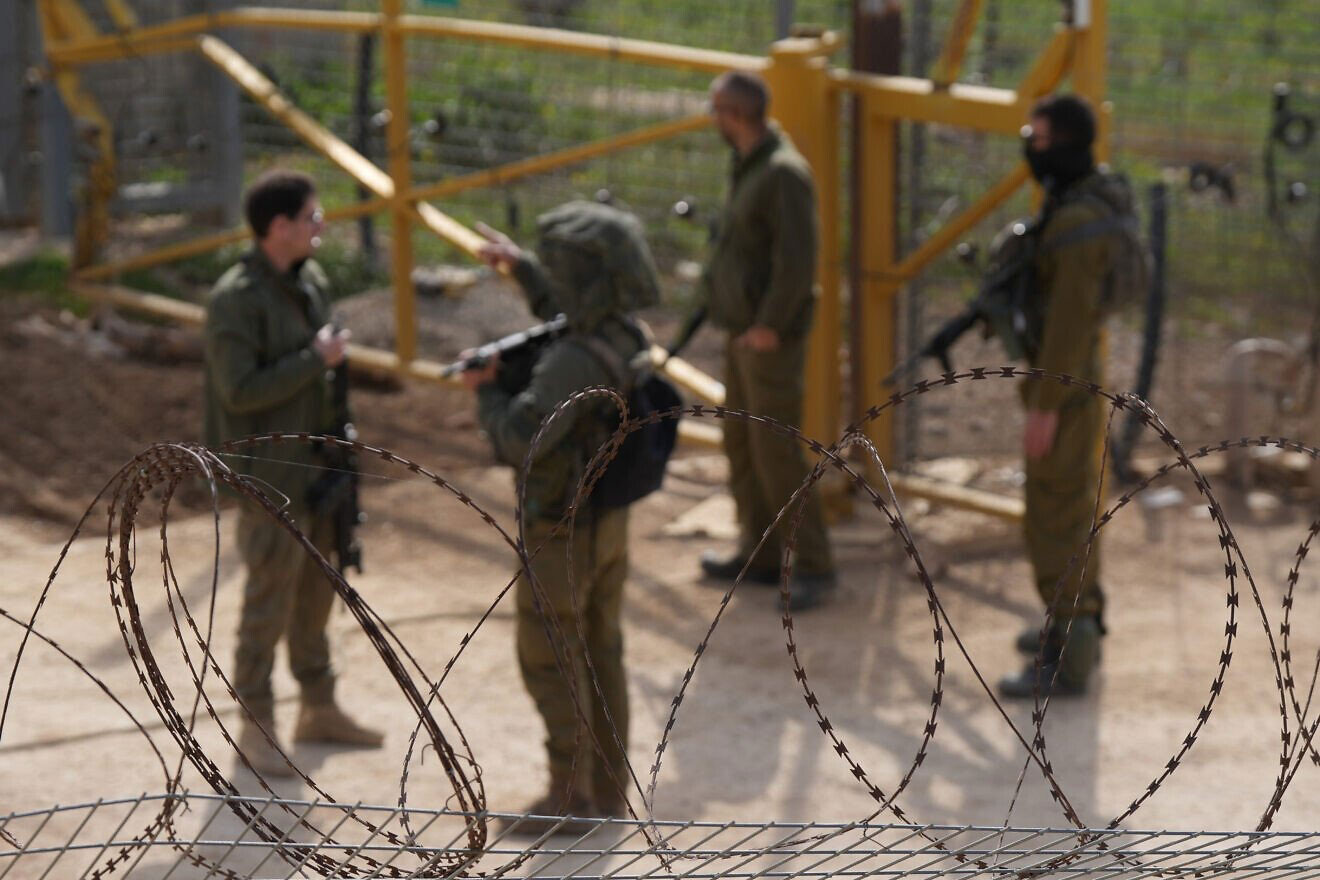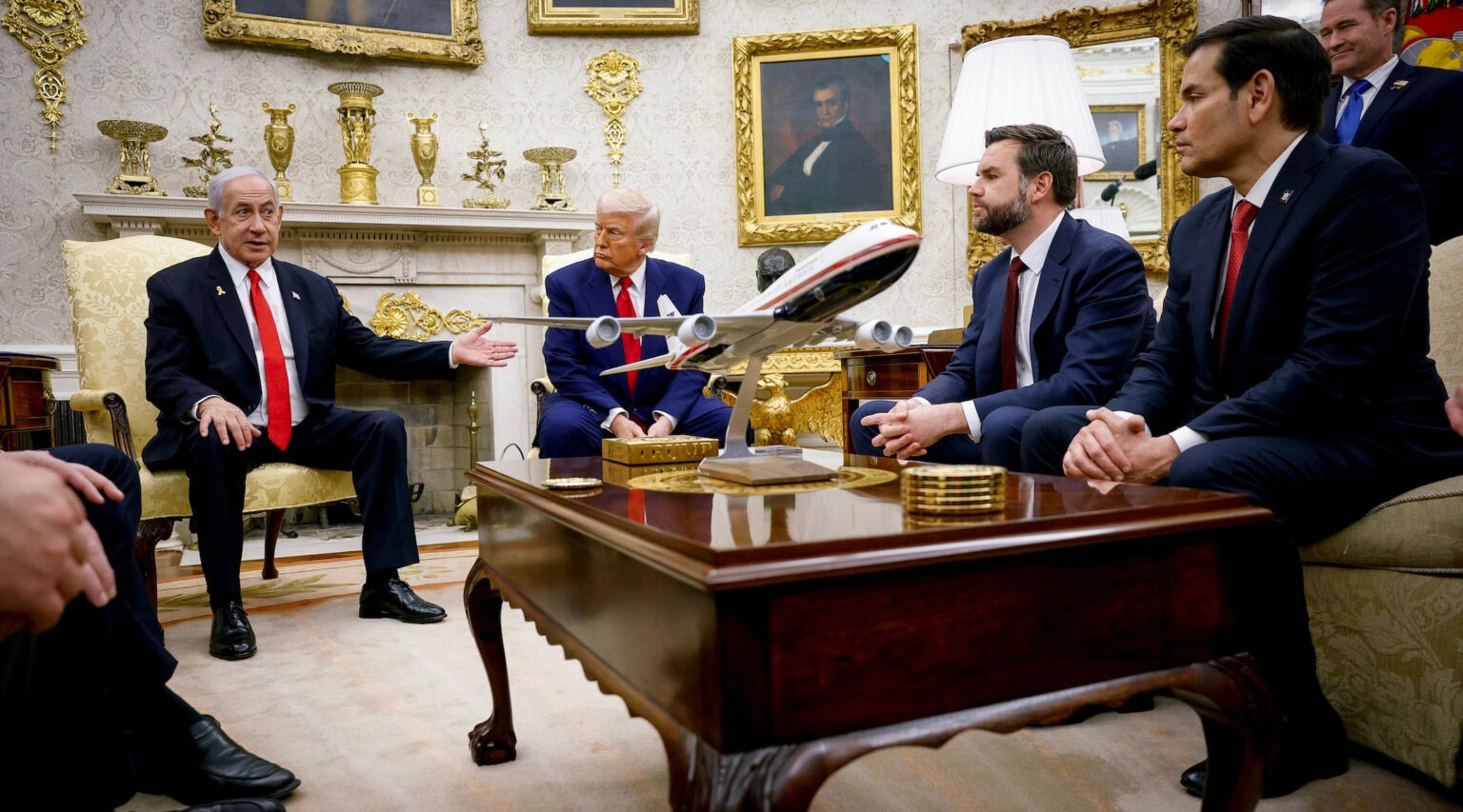Courtesy of JTA Photo credit: Czulent
Graffiti found in Warsaw reads “Morawiecki is Chabad Lubavitch,” referring to the country’s non-Jewish Prime Minister Mateusz Morawiecki and the Hasidic Chabad-Lubavich movement. Morawiecki’s right-wing Law and Justice Party has worked closely with Jewish groups.
(April 24, 2023 / JTA)
A Jewish association has released what is being called the first report on antisemitism conducted with direct input from Polish Jewish community organizations, counting four hundred eighty-eight incidents in 2022 submitted via an online portal and collected through extensive interviews with community members.
The incident total released on Monday by the Czulent Jewish Association is more than four times the number reported for 2021 by the European Union Agency for Fundamental Rights.
The report’s lead author, Anna Zielińska, said eighty-six percent of incidents involved online harassment and insults. She added that the word “Jew” is frequently used online to label an “enemy” as “disloyal, an outsider and unpatriotic.”
“There is not a Polish politician who hasn’t been called a Jew,” Zielińska told the Jewish Telegraphic Agency.
Czulent’s 2022 report detailed one violent act that resulted in injury, four additional violent attacks, twenty threats, thirty-four instances of damage to Jewish property and memorial sites, sixty-eight cases of antisemitic mass mailings and three hundred and seventy-two instances of “abusive” behavior. Zielińska said there was no way to know the real number of antisemitic incidents that occur because the “internet is a bottomless pit of hate.”
She is convinced that Czulent, a nongovernmental organization promoting tolerance that cooperates closely with Polish Jewish communities, has just scratched the surface.
“Time and again when I interviewed people they told me they were reluctant to report incidents because it wouldn’t change anything,” said Zielińska, a member of the Warsaw Jewish Community, one of the multiple communal groups under the Union of Jewish Religious Communities in Poland umbrella.
Antisemitic hate speech is more part of the public discourse now than it was a decade ago, she added, and focuses on conspiracy theories such as a Jewish involvement in the COVID-19 pandemic.
The Czulent report documented eighty-four cases of public antisemitic statements that were also anti-Ukrainian. When Polish President Andrzej Duda and Prime Minister Mateusz Morawiecki met earlier this month with Ukrainian President Volodymyr Zelensky, who is Jewish, the Polish leaders were accused online of serving Jewish causes, according to Zielińska.
“The context of the Ukrainian-Russian war was used to attack Jews more freely and seemingly legally,” said Zielińska. “In this way antisemitism is being used to discourage the public from supporting Ukrainian refugees.”
Over the past four years, some of the most high-profile antisemitic language in the political arena has been deployed by Grzegorz Braun, a leader of the far-right Confederation Liberty and Independence Party. Braun’s most recent target has been Ukrainian refugees, whom he accuses of seeking to create a “Ukro-Poland” — a reference to “Judeo-Poland,” an expression popularized in the early twentieth century by politicians who said Jews wanted to replace Poland with their own state.
In 2019, while he was campaigning, Braun said the United States was a “political and military tool of Jewish blackmail against Poland” and wrote that “Jews have waged war against the Polish nation for centuries, in fact against the whole Christian world.” His party, referred to in Poland as Confederation, is the country’s third most popular, with support from eleven percent of the electorate, according to a March survey by the independent polling agency Ipsos.
In the upcoming fall parliamentary elections, some analysts have predicted that the ruling right-wing Law and Justice party, which spends significant funds on Jewish monuments and culture, will need the support of Confederation and its voters to form a government.
Over the past five years, specific political developments have fueled negative attitudes towards Jews, she noted. In 2019, thousands of Polish nationalists protested in front of the U.S. Embassy in Warsaw against U.S. efforts to require Poland to compensate Jews whose families lost property during the Holocaust.
Michael Schudrich, Poland’s chief rabbi, said that although he agreed that online public discourse in Poland could be antisemitic, violent acts of antisemitism were incredibly rare. In 2006, a man who yelled “Poland is for Poles,” hit Schudrich and attacked him with pepper spray.
“Thousands of Hasidim come to Poland each year for various anniversaries and there has never been a real problem,” he said. “And as for me, the only time anyone attacked me was under a left-wing government.”
He said he sees no evidence that antisemitism in Poland is on the rise, but he believes the government’s push for a nationalistic patriotic narrative of the past — focused on Polish heroism during the Holocaust — and its courting of the extreme right has had consequences.
“Antisemites today feel more empowered to say what’s on their minds,” he said.
Jews in Poland range in number from more than fifteen thousand, according to a government census, to fewer than ten thousand, according to the World Jewish Congress.




